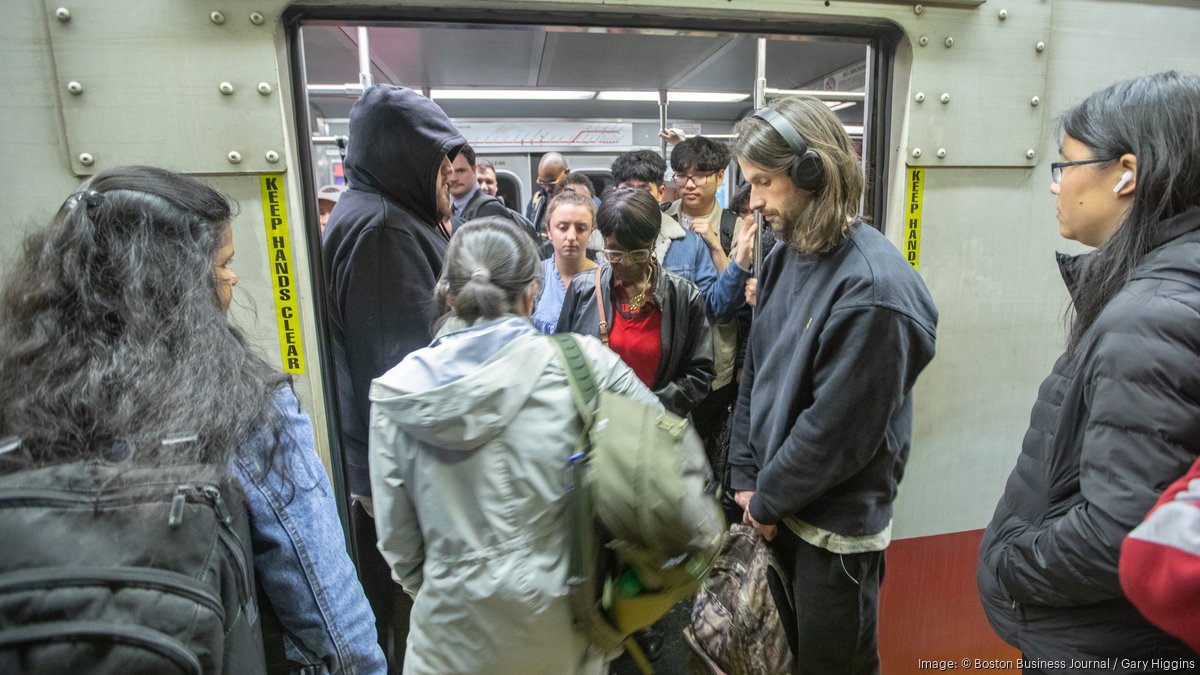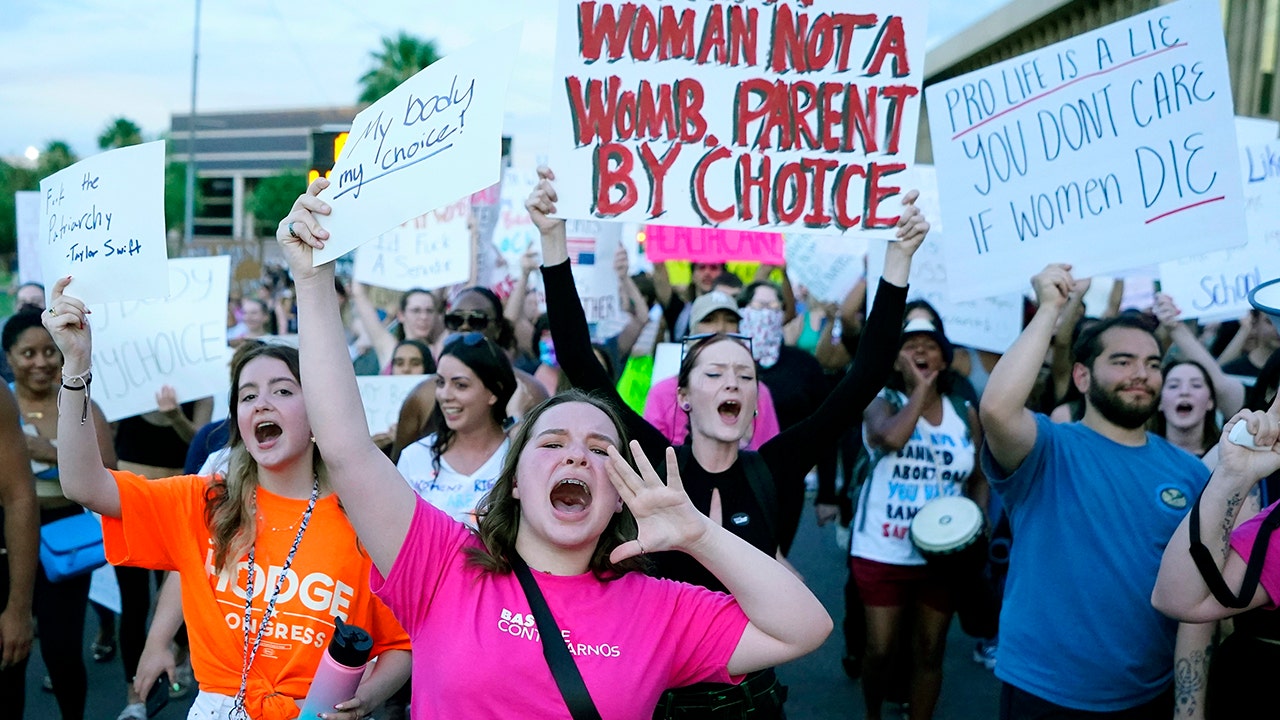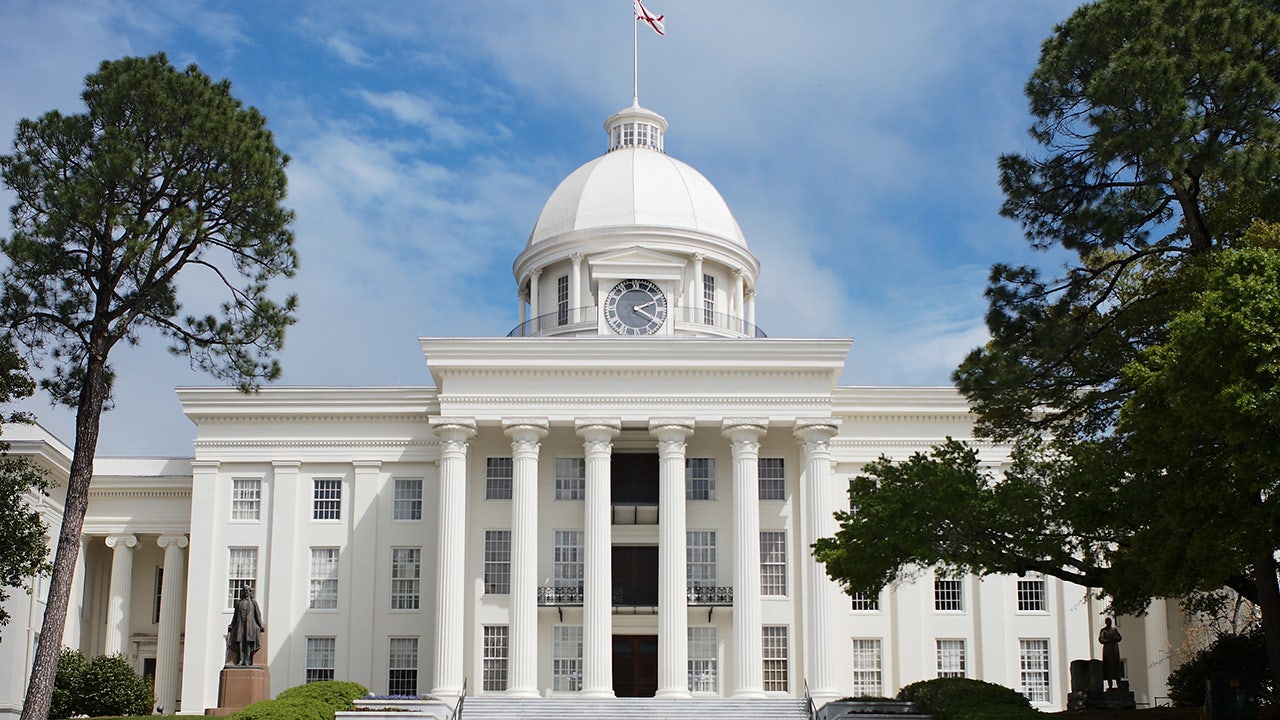Los Angeles, Ca
Orange County residents say weed-killing chemical sprayed near homes is making them sick

Residents in Aliso Viejo are speaking out against local officials, saying the herbicides being sprayed in their neighborhoods are making them sick.
Locals said they’ve been complaining about the chemicals for months, however, the Aliso Viejo Community Association claims there’s nothing to worry about.
Carolyn McCuan, an Aliso Viejo resident, said the chemicals have caused her to suffer a variety of symptoms.
“I had headaches, rashes on my face and arms, chronic fatigue,” said McCuan.
McCuan is part of a Toxic-Free OC, a group of Aliso Viejo residents who aim to stop the chemical’s continued use in the city. The group is greatly concerned about the chemical’s lasting health effects on locals.
The herbicide, called Cheetah Pro, was recently sprayed at Canyon View Park which is located behind McCuan’s home.
Cheetah Pro, which contains glufosinate, carries health warnings similar to Roundup, a glyphosate-based herbicide at the center of more than 100,000 lawsuits nationwide resulting in at least $11 billion in payouts to cancer patients, the Orange County Register reports.
“I actually had a toxins test done and it was very clear the herbicides were extremely high in my system and was causing my illness,” McCuan said.
The test results showed that McCuan had a concentration of glyphosate in her urine that was 18 times greater than 95% of women her age.
The Aliso Viejo Community Association landscapes and maintains hundreds of acres of public parks and green spaces in the city where Cheetah Pro is likely used.
Concerned residents believe they have been unknowingly inhaling the toxic chemical for months.
“The landscaper’s workmen were actually spraying the herbicide right up to my fence,” said Melissa Christian, a resident.
Christian said she and her dog had both gotten sick from exposure to toxic fumes during their daily walks at a local park. She believes there are better, non-toxic ways to remove weeds.
“They can pull the weeds out, they can use organics,” Christian said. “I mean, we all know that there are other things available but they just won’t consider it.”
The community association maintains that the spraying procedures are conducted according to state and federal guidelines.
In a statement obtained by the O.C. Register, Aliso Viejo Community Association officials said:
“AVCA has at all times met or exceeded all applicable state and federal laws for pesticide use. AVCA’s board and staff have collectively spent thousands of hours studying this topic and working with expert consultants to find alternatives that are effective, legal, safe and affordable.”
However, local residents remain concerned and frustrated and are asking the city to consider alternative solutions.
“Why does anybody else’s child, dog, adult, anybody have to go through this thing?” said a resident who did not wish to be identified.
“The risk outweighs the benefits,” McCuan said. “We just need to stop. It’s 2024, let’s do better.”

Los Angeles, Ca
Long Beach declares public health emergency after deadly tuberculosis outbreak

City officials declared a public health emergency Thursday after a tuberculosis outbreak left one person dead and nine others hospitalized.
Health officials said the outbreak stemmed from a group of people who stayed together at a Long Beach hotel room.
As of April 29, 14 cases of tuberculosis (TB) are associated with this outbreak — nine of them required hospitalization and one case was fatal.
Investigators said around 170 people have likely been exposed to the illness. Health officials are in contact with any guests or individuals who were at the hotel during the time the infected people were present.
Tuberculosis is a serious illness that mainly affects the lungs, according to the Centers for Disease Control and Prevention.
The bacteria is spread through the air when an infected person coughs, sneezes or speaks.
“Tuberculosis spreads easily where people gather in crowds or where people live in crowded conditions,” Long Beach health officials said. “People with HIV/AIDS and other people with weakened immune systems have a higher risk of catching tuberculosis than people with typical immune systems.”
“Symptoms of TB disease depend on where in the body the TB bacteria are growing,” the CDC explains. “TB bacteria usually grow in the lungs (pulmonary TB). TB disease in the lungs may cause symptoms such as:
- A bad cough that lasts 3 weeks or longer
- Pain in the chest
- Coughing up blood or sputum (phlegm from deep inside the lungs)
Other symptoms of TB disease include:
- Weakness or fatigue
- Weight loss
- No appetite
- Chills
- Fever
- Sweating at night
Most cases of tuberculosis can be treated with antibiotics. However, those taking medication may need to do so for around six to nine months.
The CDC also notes that not everyone infected with the TB bacteria will become sick. As a result, two TB-related conditions exist — latent TB infection and TB disease.
“People who have been infected but are not yet sick have what’s called latent tuberculosis infection (LTBI),” health officials explained. “People with LTBI can take medication so that they do not later get sick with active TB disease.”
The city’s emergency declaration will “streamline the Department’s ability to quickly secure resources and take additional action to contain the outbreak,” Long Beach officials explained. “The population of concern requires outreach and engagement, necessitating significant staff time to perform multiple interactions. The Department has exhausted their resources to manage this response without an emergency declaration.”
The declaration allows the city to implement preventive measures including:
- Mobilizing City resources
- Accelerating emergency planning
- Streamlining staffing
- Coordinating with other agencies
- Expediting the ability of the City to purchase necessary supplies to identify and treat TB
- Allowing for possible future reimbursement by the State and federal governments
- Raising awareness throughout Long Beach about TB
“The risk of TB for people who live, work, study or visit in Long Beach remains very low,” city officials noted. “The Health Department will continue to screen individuals associated with this outbreak and expects the number of cases and contacts to increase.”
The hotel’s name was not released “to protect patient privacy and comply with HIPAA [Health Insurance Portability and Accountability Act] regulations,” officials said.
More information on tuberculosis can be found on the California Department of Public Health’s website or through the CDC’s website.
Los Angeles, Ca
Over 100 arrested in Southern California drug bust operation

Over 100 people were arrested during a massive drug bust operation in Southern California.
The undercover bust targeted the Magnolia Avenue corridor, between Van Buren Boulevard and Pierce Street in Riverside, according to the Riverside Police Department.
The multi-day effort, called “Operation Street Sweeper,” stemmed from “increased criminal activity and complaints from community members and businesses,” police said.
Over a three-week period, 46 people were seen buying a variety of illegal narcotics including methamphetamine, fentanyl, cocaine, PCP and Psilocybin mushrooms.
In a three-day operation, 44 drug dealers were identified and 33 of them were arrested for narcotics sales violations.
With help from nearby agencies, 71 additional suspects were also arrested for multiple charges including:
- 32 misdemeanor arrests were made for trespassing, public intoxication, possession of drug paraphernalia, and illegal possession of controlled substances
- 21 outstanding misdemeanor arrest warrants for shoplifting, petty theft, trespassing, possession of drug paraphernalia, illegal possession of controlled substances, and being under the influence of a controlled substance
- 15 arrests for violation of parole, probation, and post-release community supervision
- 3 outstanding felony arrest warrants
- 3 probation searches were conducted at local motel rooms
- 2 search warrants were served at local residences
A total of 104 people were arrested during the large-scale bust. Most of the people arrested claimed to be homeless or living in various motels along Magnolia Avenue, officers said.
During a probation search of a motel room, police discovered a woman who was wanted for a 2022 felony drunk-driving crash that critically injured two women and a 4-year-old boy.
Inside her motel room was also a man with an outstanding warrant for burglary. Police discovered the man possessed several thousand dollars worth of stolen merchandise as well.
Since the arrests, medical aid and police calls for incidents along the Magnolia Avenue corridor “immediately and significantly decreased as a result,” authorities said.
“This wasn’t a one-and-done operation, and our enforcement efforts will continue until our community members, businesses, and visitors feel a constant sense of safety in Riverside,” said Larry V. Gonzalez, Riverside Police Chief.
“The Riverside Police Department will continue its directed enforcement and efforts to investigate those engaged in the trafficking and sale of illicit drugs within our neighborhoods, amongst other crimes affecting the safety of community members,” the police department said.
The public can submit tips about illegal drug activity by calling Riverside police at 951-354-2007.
Information can also be submitted through the “Atlas 1” mobile app by using the “Send a Message” feature. App downloads for Apple devices can be found here. Android device downloads can be found here.
Los Angeles, Ca
At least 2,000 people arrested at pro-Palestinian protests on US campuses, AP tally shows

LOS ANGELES (AP) — Police have arrested more than 2,000 people during pro-Palestinian protests at college campuses across the United States in recent weeks, according to an Associated Press tally Thursday.
Demonstrations — and arrests — have occurred in almost every corner of the nation. But in the last 24 hours, they’ve drawn the most attention at the University of California, Los Angeles, where chaotic scenes played out early Thursday when officers in riot gear surged against a crowd of demonstrators.
Hundreds of protesters at UCLA defied orders to leave, some forming human chains as police fired flash-bangs to break up the crowds.
At least 200 people were arrested, said Sgt. Alejandro Rubio of the California Highway Patrol, citing data from the Los Angeles County Sheriff’s Department. Rubio said they were being booked at the county jails complex near downtown Los Angeles. UCLA police will determine what charges to bring.
Later Thursday morning, workers removed the barricades and dismantled the protesters’ fortified encampment. Bulldozers scooped up bags of trash and tents. Some buildings were covered in graffiti.
Tent encampments of protesters calling on universities to stop doing business with Israel or companies they say support the war in Gaza have spread across campuses nationwide in a student movement unlike any other this century.
The demonstrations began at Columbia University on April 17, with students calling for an end to the Israel-Hamas war, which has killed more than 34,000 Palestinians in the Gaza Strip, according to the Health Ministry there. Israel launched its offensive in Gaza after Hamas militants killed about 1,200 people, mostly civilians, and took roughly 250 hostages in an attack on southern Israel on Oct. 7.
California Highway Patrol officers poured into the UCLA campus by the hundreds early Thursday. Wearing face shields and protective vests, they held their batons out to separate them from demonstrators, who wore helmets and gas masks and chanted: “You want peace. We want justice.”
For hours, officers warned over loud speakers that there would be arrests if the crowd of more than 1,000 people did not disperse. Protesters and police shoved and scuffled as officers encountered resistance. With police helicopters hovering, the sound of flash-bangs pierced the air. Police pulled off protesters’ helmets and goggles as they made arrests.
Police methodically ripped apart the encampment’s barricade of plywood, pallets, metal fences and dumpsters, then pulled down dozens of canopies and tents. The number of protesters diminished through the morning, some leaving voluntarily with their hands up and others detained by police.
The law enforcement presence and continued warnings contrasted with the scene Tuesday night, when counterdemonstrators attacked the pro-Palestinian encampment, throwing traffic cones, releasing pepper spray and tearing down barriers. Fighting between the two sides continued for hours before police stepped in. No one was arrested, but at least 15 protesters were injured. Authorities’ tepid response drew criticism from political leaders, Muslim students and advocacy groups.
By Wednesday afternoon, a small city sprang up inside the reenforced encampment, with hundreds of people and tents on the quad. Demonstrators rebuilt the makeshift barriers around their tents while state and campus police watched.
Some protesters said Muslim prayers as the sun set, while others chanted “we’re not leaving” or passed out goggles and surgical masks. They wore helmets and headscarves, and discussed the best ways to handle pepper spray or tear gas as someone sang over a megaphone.
The crowd grew as the night wore on and as more officers poured onto campus.
Ray Wiliani, who lives nearby, said he went to UCLA on Wednesday evening to support the pro-Palestinian demonstrators.
“We need to take a stand for it,” he said. “Enough is enough.”
California Gov. Gavin Newsom denounced the delayed law enforcement response on Tuesday and UCLA Chancellor Gene Block promised an investigation. The head of the University of California system, Michael Drake, ordered an “independent review of the university’s planning, its actions and the response by law enforcement.”
“The community needs to feel the police are protecting them, not enabling others to harm them,” Rebecca Husaini, chief of staff for the Muslim Public Affairs Council, said during a news conference Wednesday.
Iranian state television carried live images of the police action at UCLA, as did Qatar’s pan-Arab Al Jazeera satellite network. Live images of Los Angeles also played across Israeli television networks.
Israel has branded the protests antisemitic, while Israel’s critics say it uses those allegations to silence opposition. Although some protesters have been caught on camera making antisemitic remarks or violent threats, protest organizers — some of whom are Jewish — call it a peaceful movement to defend Palestinian rights and protest the war.
President Joe Biden on Thursday defended the students’ right to peaceful protest but decried the disorder of recent days.
On Thursday, California Republican leaders blasted university administrations for failing to protect Jewish students and allowing protests to escalate into “lawlessness and violence.”
They’re calling for the firing of leaders at universities such as UCLA and Cal Poly Humboldt and are pushing for a proposal that would cut pay for university administrators.
“We’ve got a whole lot of people in these universities drawing six figure salaries and they stood by and did nothing,” Assembly Republican Leader James Gallagher told reporters. “There does need to be accountability.”
Meanwhile, protest encampments at schools across the U.S., were cleared by police — resulting in more arrests — or closed up voluntarily. In New York, those included the City College of New York, Fordham University, Stony Brook University and the University of Buffalo. Others nationwide included the University of New Hampshire in Durham, Northern Arizona University in Flagstaff, and Tulane University in New Orleans.
A college professor from Illinois said he suffered multiple broken ribs and a broken hand during a pro-Palestine protest on Saturday at Washington University in St. Louis, Missouri.
Bystander video shows the arrest of Steve Tamari, a history professor at Southern Illinois University Edwardsville. He seems to be moving in to take video or photos of protesters being detained when multiple officers roughly take him down.
Tamari said in a statement Thursday that it was “a small price to pay for Israel’s ongoing genocide in Gaza.” Campus police referred questions to the university’s communications department, which did not respond to a request for comment.
Upcoming graduations have become a concern.
Florida’s state university chancellor ordered campus presidents to take whatever steps necessary to prevent disruption of ceremonies. At the same time, University of Minnesota officials reached agreement with protesters not to disrupt commencements. Similar agreements have been made at Northwestern University in suburban Chicago and Brown University in Rhode Island.
Meanwhile, a professors group at Columbia University condemned school leadership on Thursday for asking police to remove protesters in what the group called a “horrific police attack on our students.” Officers burst into a building Tuesday, breaking up a demonstration that had paralyzed the school.
U.S. college campuses have become a flashpoint, with school leaders facing intense scrutiny over their handling of allegations of antisemitism and the right to free speech. The presidents of Harvard and the University of Pennsylvania resigned following questions at a congressional hearing about whether calls on campus for the genocide of Jews would violate the school’s conduct policy.
___
Offenhartz and Frederick reported from New York. Associated Press journalists around the country contributed to this report, including Julie Watson, Krysta Fauria, John Antczak, Christopher L. Keller, Lisa Baumann, Stefanie Dazio, Jae C. Hong, Colleen Long, Karen Matthews, Sarah Brumfield, Carolyn Thompson, Philip Marcelo, Steve Karnowski and Eugene Johnson.
-

 News1 week ago
News1 week agoLarry Webb’s deathbed confession solves 2000 cold case murder of Susan and Natasha Carter, 10, whose remains were found hours after he died
-

 World1 week ago
World1 week agoHaiti Prime Minister Ariel Henry resigns, transitional council takes power
-

 News1 week ago
News1 week agoFirst cargo ship passes through new channel since Baltimore bridge collapse
-

 World1 week ago
World1 week agoUS secretly sent long-range ATACMS weapons to Ukraine
-

 World1 week ago
World1 week agoSpanish PM Pedro Sanchez suspends public duties to 'reflect'
-

 News1 week ago
News1 week agoAmerican Airlines passenger alleges discrimination over use of first-class restroom
-

 Movie Reviews1 week ago
Movie Reviews1 week agoHumane (2024) – Movie Review
-

 Education1 week ago
Education1 week agoVideo: Johnson Condemns Pro-Palestinian Protests at Columbia University































